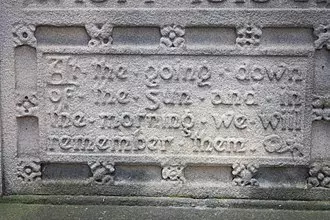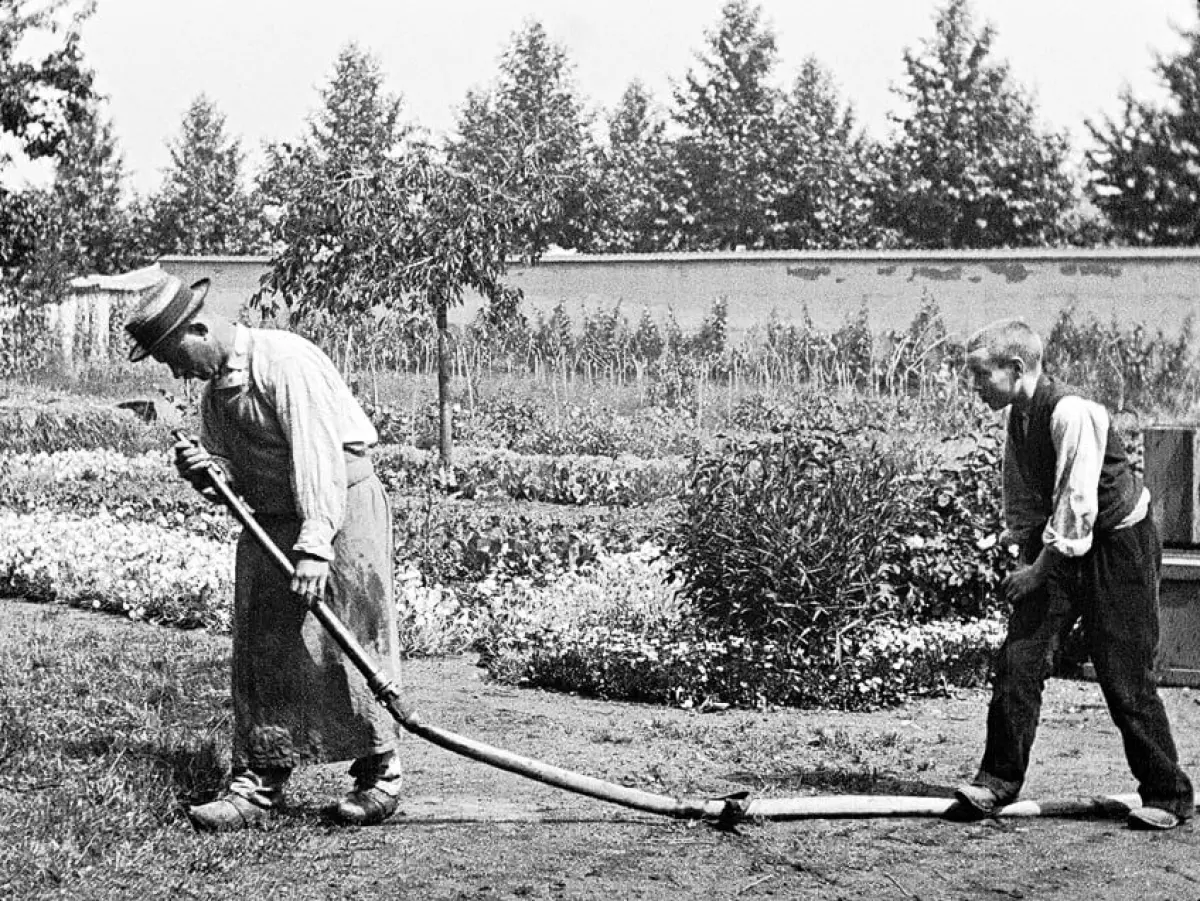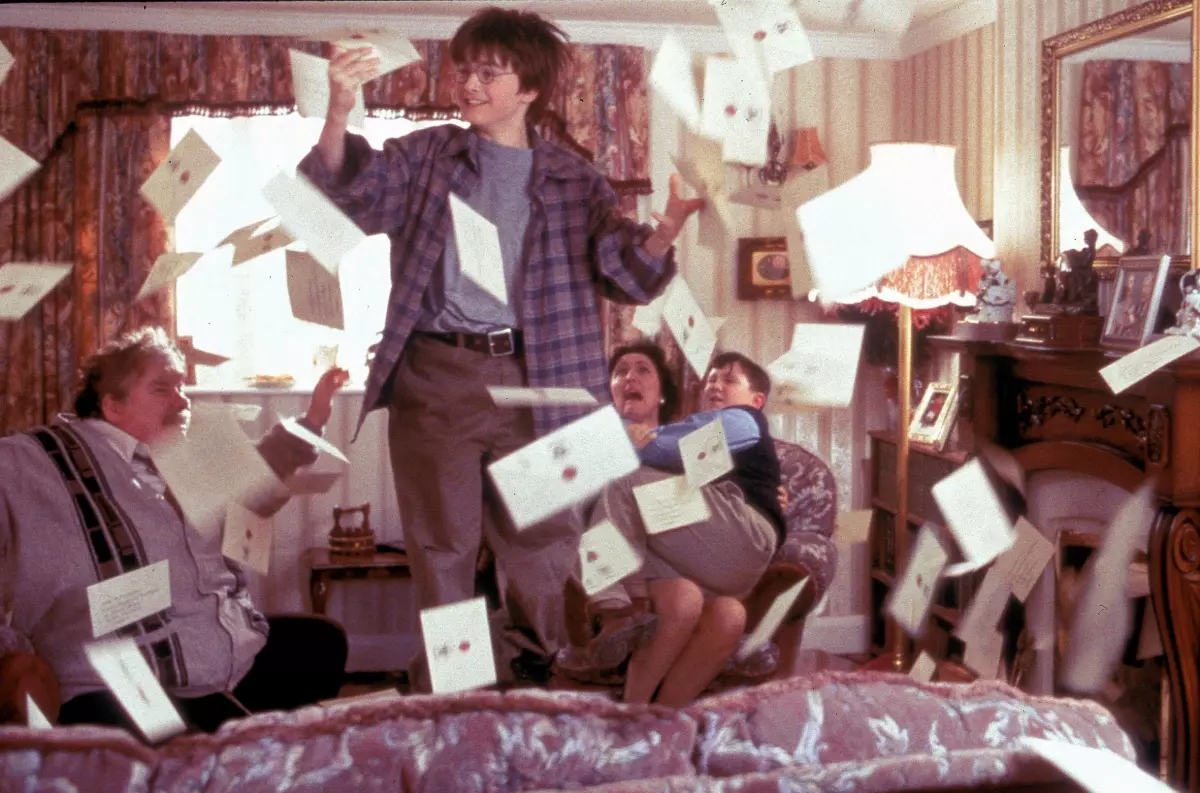 Image: For the Fallen
Image: For the Fallen
By Laurence Binyon
"For the Fallen" is a poignant poem written by Laurence Binyon. Originally published in The Times in September 1914, it has since become a powerful tribute to the casualties of war. This timeless ode captures the essence of remembrance and is often recited at services commemorating those who have sacrificed their lives for their countries.
The Background
 Image: War memorial in ChristChurch Cathedral, Christchurch, New Zealand
Image: War memorial in ChristChurch Cathedral, Christchurch, New Zealand
Laurence Binyon, a British poet, expressed a somber response to the outbreak of World War I. In contrast to the prevailing euphoria, he penned his first war poem, "The Fourth of August," just a week after the war began. "For the Fallen" followed soon after, written while Binyon sat on the cliffs of north Cornwall, UK.
The Poem
The poem's first stanza establishes a patriotic element, personifying the United Kingdom as a mother and its soldiers as her children. It remembers their deaths while justifying the cause as "the cause of the free." The monosyllabic words in the second stanza mirror the solemnity of funeral drums, portraying war as a sober yet glorious endeavor. The third stanza pays tribute to soldiers marching to battle, unwavering in the face of insurmountable odds. Finally, the fourth stanza resonates with its iconic lines, immortalizing the fallen soldiers who shall not grow old.
In the fifth stanza, Binyon mourns the loss of soldiers who left behind their loved ones and comrades. The sixth stanza describes their death as a transcendence of the physical, while the seventh stanza compares them to stars and constellations, forever marching as soldiers.
Critical Response
John Hatcher, in his biography on Laurence Binyon, praises "For the Fallen" for its gravitas, tenderness, and depth of grief. He notes that while other war poems of the time fell short in capturing the true horrors of the conflict, Binyon's piece grew in stature with each defeat and victory. The British Library regards the poem as one of the most affecting elegies of the period.
Usage
The "Ode of Remembrance" is regularly recited at memorial services commemorating the First World War, such as ANZAC Day and Remembrance Day. It is often followed by the haunting melody of the "Last Post." The Menin Gate in Belgium holds a nightly ceremony where the ode is solemnly recited.
Memorial Services and Monuments
In Australia and New Zealand, the ode is read nightly at 6 p.m. in Returned and Services Leagues and Returned Services Associations. It is also an integral part of the Dawn Service in both countries. The Australian War Memorial incorporates the ode into its Last Post Ceremony, where it is read by a member of the Australian Defence Force.
In Canada, a French translation of the ode is often used during remembrance services. The ode appears on several war memorials around the world, including one in La Valletta, Malta, and another in Teluk Intan, Malaysia.
Musical Settings and Popular Culture
Renowned composer Sir Edward Elgar set three of Binyon's poems, including "For the Fallen," to music in his composition "The Spirit of England." Other musicians, such as Douglas Guest and Mark Blatchly, have also created musical interpretations of the poem.
The poem has found its way into popular culture as well. It has been referenced in literature, recited at tribute events, and even included in songs by bands like Bolt Thrower. In the world of television, it was featured in an emotionally charged scene in the Doctor Who episode "The Family of Blood."
"For the Fallen" continues to evoke powerful emotions, reminding us of the sacrifice made by brave soldiers. Its enduring legacy lies in its ability to capture the essence of remembrance and pay tribute to those who have given their all.
References:
- Hatcher, John. "Laurence Binyon: Poet, Scholar of East and West." Oxford UP, 1995.
- Moffett, Alex. "We Will Remember Them: The Poetic Rewritings of Lutyens' Cenotaph 1." War, Literature & the Arts, vol. 12, 2007, pp. 228-246.
- Moore, Jerrold N. "Edward Elgar: A Creative Life." Oxford UP, 1984.















